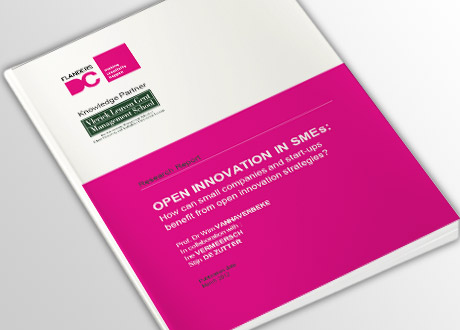By: Innovation Management
Difficult market conditions force SMEs to adapt or reinvent their businesses through new technologies or unique value propositions, but they often lack resources and technical capabilities and must thus collaborate with others to compete. Those that succeed in this transition often employ open innovation. A study by Dr Wim Vanhaverbeke, in collaboration with Ine Vermeersch and Stijn De Zutter found that open innovation can create new opportunities for all types of SME – from start-ups in high-tech markets to players in traditional markets – because they can change business models without having the required technologies in-house.
Key actors in 10 diverse Flemish, Dutch and Danish SMEs that changed strategy were interviewed and revealed how they devised new business models to leverage value from technologies in other organisations or co-developed with partners.
This analysis of a phenomenon well known among large companies is the first anywhere to focus in depth on the little-understood theme of how SMEs employ open innovation.
The researchers learned that SMEs in both high- and low-tech industries which know how to manage a network of innovation partners can seize new opportunities to become highly profitable – but networks are only sustainable when the value jointly created is significantly larger than that realised by partners on their own. Next, the value which is jointly created should be ivied in an equitable way to ensure the cohesion of the network in the long run. Value creation and value capturing is not an automatic process and has to be managed by a central partner in the network.
Their findings call for close attention to links between open innovation and business modelling and they identify how best to manage partnerships and networks.
By Dr Wim Vanhaverbeke in collaboration with Ine Vermeersch and Stijn De Zutter, (Flanders DC Knowledge Centre at Vlerick Leuven Gent Management School)

